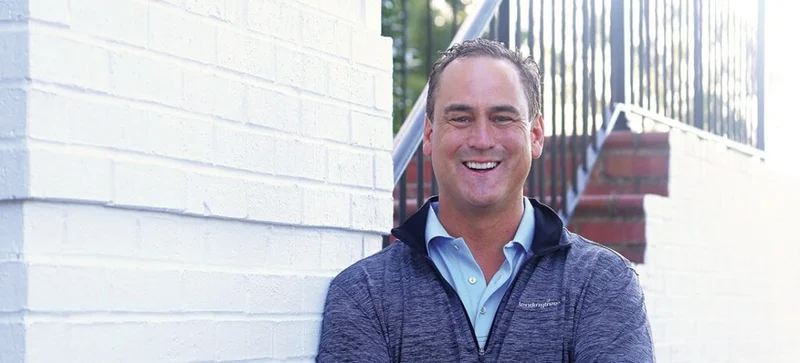Connecting Data to Wealth Creation
Connecting Data to Wealth Creation
There are moments when the news hits you not just as a headline, but as a system shock. The sudden, tragic death of LendingTree founder Doug Lebda in an ATV accident is one of those moments. At 55, he wasn’t just a CEO; he was an architect of transparency in an industry that for centuries thrived on opacity. His passing isn't just the loss of a leader; it's the silencing of a mind that fundamentally rewired how millions of people interact with one of the most stressful, high-stakes decisions of their lives: borrowing money.
When I read that the accident happened on the very farm he was so passionately building in North Carolina, a project former Governor Pat McCrory said he was "so proud of," I was struck by the brutal randomness of it all. Here was a man who spent his life imposing order and clarity onto chaotic financial systems, taken by a moment of sheer, unpredictable physics. It’s a heartbreaking reminder that visionaries are still vulnerable, that the minds shaping our digital future are still subject to the fragile realities of the physical world. But to only mourn the man is to miss the magnitude of the blueprint he left behind.
To understand what Doug Lebda built, you have to remember what came before. Imagine trying to buy a house in the mid-1990s. The process was a black box. You walked, cap in hand, into a bank. You sat in a stiff chair across from a loan officer who held all the cards—the rates, the terms, the secret formulas. You had no real way of knowing if the deal you were getting was fair, competitive, or even sane. Comparison shopping wasn't just hard; it was functionally impossible. It was a system designed to disempower.
Lebda experienced this firsthand while trying to get a mortgage for his condo. But where most of us would just feel frustration, he saw a glitch in the matrix. He had this beautifully simple, yet revolutionary, insight. His work as a consultant for energy companies had shown him how markets could create efficiency. So why couldn't the same logic apply to loans? His idea was to flip the entire model on its head. Instead of one consumer begging multiple banks, what if multiple banks competed for one consumer?

This is the kind of breakthrough that reminds me why I got into this field in the first place. He essentially created a marketplace for debt—in simpler terms, he built an Expedia for money. You put in your destination (a home loan, a car loan) and a host of lenders would instantly show you their best fares. This simple act of pulling back the curtain was a paradigm shift. It’s like the invention of the price tag. Before that, every purchase was a negotiation shrouded in mystery. Lebda put a digital price tag on the cost of money, and in doing so, he transferred an immense amount of power from the institution to the individual.
What’s so compelling about Lebda’s story is that he wasn’t some Silicon Valley coder trying to "disrupt" an industry from the outside. He was an insider—an auditor at PwC, a student at Darden School of Business—who saw the system’s flaws from within and had the audacity to believe he could fix it. He left business school to chase this idea, founding what was then called CreditSource USA in 1996. It was a bet on the simple, powerful idea that people, when given clear information, will make smart choices.
His vision was never just about the technology; it was about the human at the other end of the screen. Reading the words of his wife, Megan, you see the source code of his company’s philosophy. "He was an amazing man with a heart so big it seemed to have room for everyone he met," she said. "Compassionate, generous, and endlessly curious." That’s the DNA of LendingTree. It’s a platform built on the radical empathy of remembering what it feels like to be the confused, frustrated person on the other side of the desk.
The company he built, headquartered in his chosen home of Charlotte, became a testament to this vision. It doesn't make loans; it facilitates clarity. His successor, Scott Peyree, inherits not just a company, but a mission. And the weight of that mission is now heavier. Because the world is full of opaque systems, of industries that thrive on confusion. Who will take Lebda's blueprint and apply it to healthcare pricing? To university tuition? To the byzantine world of legal services? The work is far from over.
Doug Lebda’s life was tragically cut short, but his core idea is immortal. It’s the belief that technology’s highest purpose isn’t just to create efficiency for corporations, but to arm everyday people with the information they need to navigate a complex world with confidence. He proved that you can build a massively successful company by simply being on the consumer’s side. The question he leaves for all of us, for every innovator and entrepreneur, is a simple one: What black box are you going to break open next?